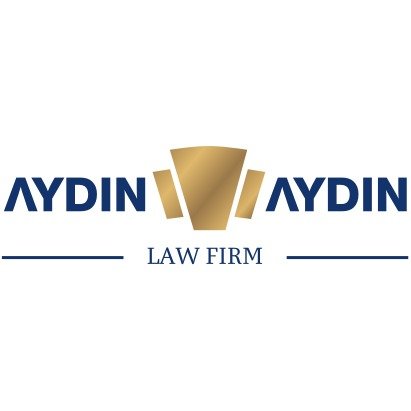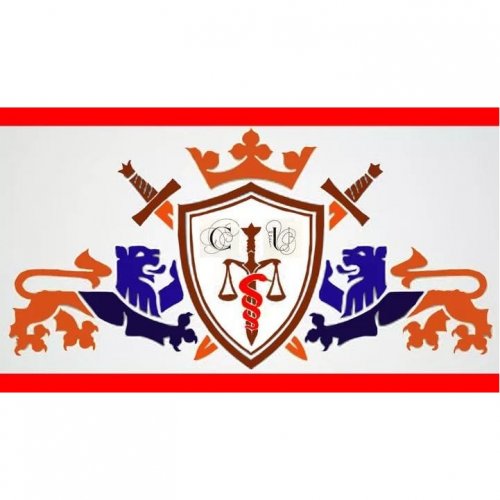Best Communications & Media Law Lawyers in Ankara
Share your needs with us, get contacted by law firms.
Free. Takes 2 min.
List of the best lawyers in Ankara, Turkey
About Communications & Media Law in Ankara, Turkey
Communications & Media Law in Ankara, Turkey governs the legal aspects related to mass media, communication, and broadcasting services. It is a specialized field that ensures the protection of individuals' rights, promotes freedom of speech and expression, regulates media content, and outlines legal responsibilities for media organizations and professionals.
Why You May Need a Lawyer
There are various situations where seeking legal assistance in Communications & Media Law becomes necessary, including:
- Defamation or libel claims: If someone has made false statements about you or your organization, leading to reputational damage, a lawyer can help you pursue legal actions.
- Censorship or content restrictions: If your content has been censored or restricted by the authorities, a lawyer can advise on your rights and potential legal remedies.
- Intellectual property issues: If your work, such as copyrighted materials or trademarks, has been illegally used, a lawyer can assist you in protecting your intellectual property rights.
- Licensing and compliance: If you plan to establish a media or broadcasting company, a lawyer can help you navigate the complex licensing and regulatory requirements.
- Privacy and data protection: If your personal or sensitive information has been unlawfully disclosed, a lawyer can guide you on your privacy rights and how to seek redress.
Local Laws Overview
Ankara, Turkey has laws that specifically address various aspects of Communications & Media Law:
- Constitutional Protections: The Turkish Constitution guarantees the freedom of expression and the press. However, limitations exist for the protection of national security, public order, and public morals.
- Press Law: The Press Law regulates the rights, duties, and responsibilities of media organizations and journalists. It covers aspects such as defamation, access to information, and the prohibition of censorship.
- Internet Regulations: There are specific regulations concerning online content, including restrictions on certain types of content, obligations for internet service providers, and requirements for website blocking.
- Advertising Regulations: The Advertising Law regulates advertising practices, ensuring they are truthful, not misleading, and in compliance with ethical and legal standards.
- Data Protection Law: The Data Protection Law governs the collection, processing, and storage of personal data, providing individuals with rights over their information and establishing obligations for data controllers.
Frequently Asked Questions
Q: Can I criticize public figures or the government in my media content?
A: Yes, you have the right to criticize public figures or the government as long as your statements are based on true facts and do not cross the line into defamation or hate speech.
Q: What constitutes defamation in Ankara, Turkey?
A: Defamation involves making false statements that harm someone's reputation. To be considered defamation, the statements must be untrue, published or communicated to a third party, and likely to harm the person's reputation.
Q: How can I protect my intellectual property rights in my media work?
A: You can protect your intellectual property rights by registering your work with the appropriate authorities. Copyright registration is essential for ensuring legal protection, while trademarks can be registered to safeguard your brand identity.
Q: What should I do if my content is unlawfully censored or restricted?
A: In case of unlawful censorship or content restrictions, you can consult with a lawyer who specializes in Communications & Media Law. They can advise you on your rights and assist you in pursuing legal action if necessary.
Q: How can I ensure compliance with data protection laws in my media organization?
A: To ensure compliance, you should implement robust data protection policies, obtain consent for data processing when required, handle personal data securely, and appoint a data protection officer, if necessary. Consulting with a lawyer experienced in data protection is advisable.
Additional Resources
- Ankara Bar Association - Communications & Media Law Department: www.ankarabarosu.org.tr
- Radio and Television Supreme Council (RTÜK): www.rtuk.gov.tr
- Information and Communication Technologies Authority (BTK): www.btk.gov.tr
- Turkish Advertising Standards Authority (REKLAMKURULU): www.reklamkurulu.org
Next Steps
If you require legal assistance in Communications & Media Law in Ankara, Turkey, consider the following steps:
- Research and shortlist experienced lawyers or law firms specializing in Communications & Media Law.
- Arrange initial consultations with potential lawyers to discuss your specific legal needs.
- During the consultation, ask about their experience, fees, and approach to handling cases.
- Select a lawyer whom you believe will effectively represent your interests and proceed with engaging their services.
- Provide all relevant documentation and information to your lawyer to facilitate the legal process.
- Work closely with your lawyer, following their advice and cooperating throughout the legal proceedings.
Lawzana helps you find the best lawyers and law firms in Ankara through a curated and pre-screened list of qualified legal professionals. Our platform offers rankings and detailed profiles of attorneys and law firms, allowing you to compare based on practice areas, including Communications & Media Law, experience, and client feedback.
Each profile includes a description of the firm's areas of practice, client reviews, team members and partners, year of establishment, spoken languages, office locations, contact information, social media presence, and any published articles or resources. Most firms on our platform speak English and are experienced in both local and international legal matters.
Get a quote from top-rated law firms in Ankara, Turkey — quickly, securely, and without unnecessary hassle.
Disclaimer:
The information provided on this page is for general informational purposes only and does not constitute legal advice. While we strive to ensure the accuracy and relevance of the content, legal information may change over time, and interpretations of the law can vary. You should always consult with a qualified legal professional for advice specific to your situation.
We disclaim all liability for actions taken or not taken based on the content of this page. If you believe any information is incorrect or outdated, please contact us, and we will review and update it where appropriate.













